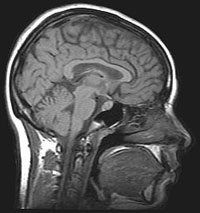Cuddling and caressing are important ingredients for long-term relationship satisfaction, according to an international study that looks at relationship and sexual satisfaction throughout committed relationships, but contrary to stereotypes, tenderness was more important to the men than to the women.
Also contrary to expectations of the researchers, men were more likely to report being happy in their relationship, while women were more likely to report being satisfied with their sexual relationship.
The couples, more than 1,000 from the United States, Brazil, Germany, Japan and Spain, where together an average 25 years. The study from the Kinsey Institute at Indiana University, published in the Archives of Sexual Behavior, is the first to examine sexual and relationship parameters of middle-aged or older couples in committed, long-term relationships. Research efforts to understand the place of sexuality in human lives rarely involves intact couples in ongoing relationships.
"You hear repeated research and commentary about divorce; but it’s important to note that though divorce rates are high in the U.S., couples tend to stay married — more than 50 percent of U.S. couples remain in their first marriage, and that number goes up to 90 percent in Spain," said Julia Heiman, director of The Kinsey Institute for Research in Sex, Gender and Reproduction and lead author of the article.






















 Loading...
Loading...














Recent comments